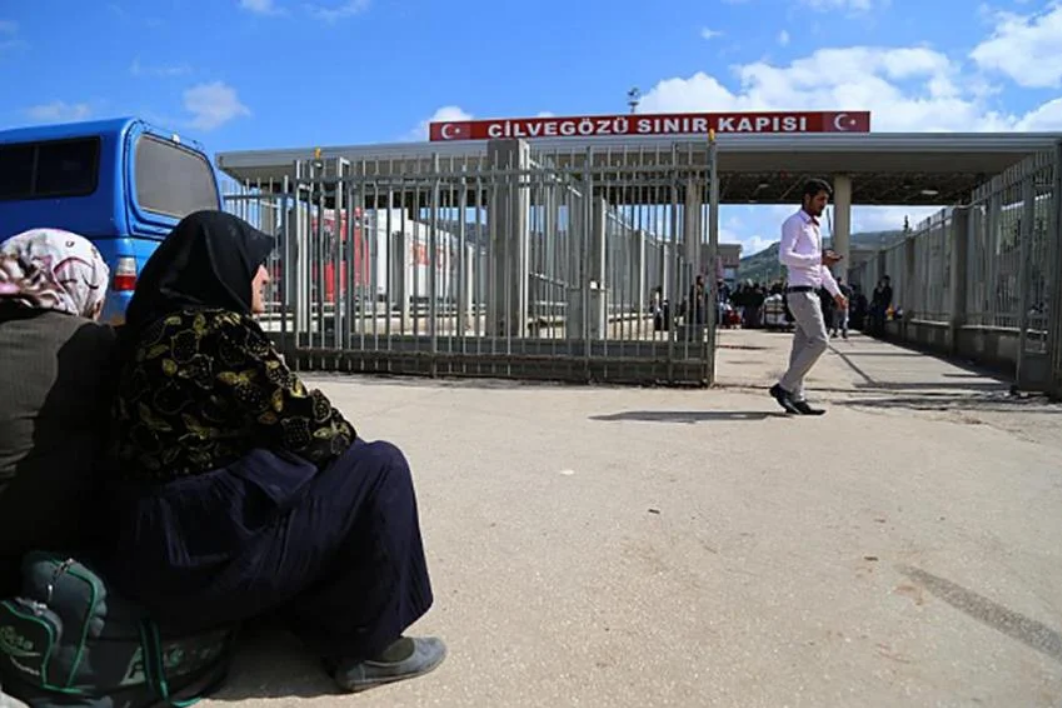Turkish statements imply messages for deporting Syrians
QAMISHLI, Syria (North Press) – The Turkish authorities continue to deport Syrian refugees to northwestern Syria under pretexts and excuses related to their lack of possessing necessary legal documents.
Recently, statements by Turkish officials have conveyed implied
messages to the Syrian refugees, that Turkey is paying great efforts to secure a safe return for them to their areas, while neglecting clashes taking place there,” according to observers.
On March 26, the head of the Immigration Department of the Interior Ministry in Turkey, Suvas Unlu, said that his country established safe areas in northern Syria, so Syrians can return to their homes safely.
This came in a speech delivered by Unlu during a session entitled “The role of the international community in managing refugee flows: Syria and beyond” at the Doha Forum 2022.
These statements coincide with a Large-scale displacement that northwest Syria is witnessing due to the escalation of clashes and the deteriorating living conditions most of the population are suffering from, according to reports.
voluntary return
Unlu noted nearly 500,000 Syrians have voluntarily returned to this part of Syria.
“Turkey hosts 3.7 million Syrian refugees, in addition to 300,000 from around the world,” Unlu added.
On March 23, the General Directorate of Migration in the capital, Ankara, informed, via emails, thousands of Syrians residing in Turkey and who obtained the temporary protection card (Kimlik) that their restrictions have been completely stopped and that their temporary protection has been canceled.
Fears of deportation to Syrian territory have increased among Syrians after receiving the email text.
The kimlik is granted by the Turkish Directorate General of Immigration Management for Syrian refugees and entitles them to move freely within Turkish territory and receive all Turkish government services.
The Turkish authorities occasionally launch campaigns related to the arrest of Syrians, and then organize the necessary files against them to deport them to Syria, according to activities.
The number of Syrian refugees who were deported from Turkey to northern Syria in January 2021, reached 2,229, according to a statement published by the Bab al-Hawa border crossing management.
Earlier in February, management of Bab al-Salameh crossing published statistics on the number of deported Syrian refugees including 59 Syrian refugees who were “forcibly” deported to Syrian territory.
Reports indicate that the Turkish authorities deport Syrian refugees after they sign a voluntary return document, but the truth says they are maltreated and coerced into signing voluntary return documents at a time when international law prohibits countries from deporting people to war zones.
A BBC investigation report stated that Syrians who tried to cross from Turkey to Greece were detained and forced to sign voluntary return documents suggesting that they decided to return voluntarily to Syria.
Amnesty International said tens or perhaps hundreds of Syrian refugees across Turkey were apprehended, detained, and deported against their will. This usually occurred after being coerced or misled into signing the so-called “voluntary return documents”, according to the investigation.
However, the Turkish government strongly denied the allegations, as international law prohibits states from deporting people to conflict zones.
The opposition Stance
The recent press statements by the president of the Syrian National Coalition, Salem al-Meslet, on the deportation of the Syrian refugees in Turkey, sparked a wave of indignation among Syrian social media users.
There is no international will to reach a political solution in Syria or provide a safe environment to secure the voluntary and safe return of Syrians, al-Meslet said in a meeting attended by a number of Turkish academicians and journalists in Istanbul on Thursday.
“Reaching a political transition in Syria and changing the regime to ensure the safety of all returnees are main obstacles that face the refugees’ return,” he added.
“The opposition-held areas are yet not prepared to receive Syrian refugees, but the interim government of the Syrian opposition is seeking to ensure the safe return of refugees and ease the burdens on Turkey,” according to al-Muslat.
The military operations that northwest Syria went through between 2019 and early 2020 forced nearly two million people of the countryside of Hama, Aleppo and Idlib to flee, according to reports.
In November 2015, Turkey blocked its border to Syrians by building a concrete wall along the border strip extended from areas in the countryside of Latakia, Idlib and Aleppo to the countryside of Hasakah, and also deployed its soldiers along the aforementioned area.

